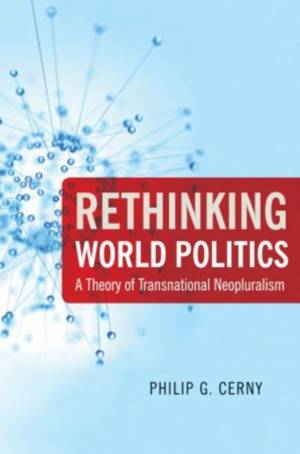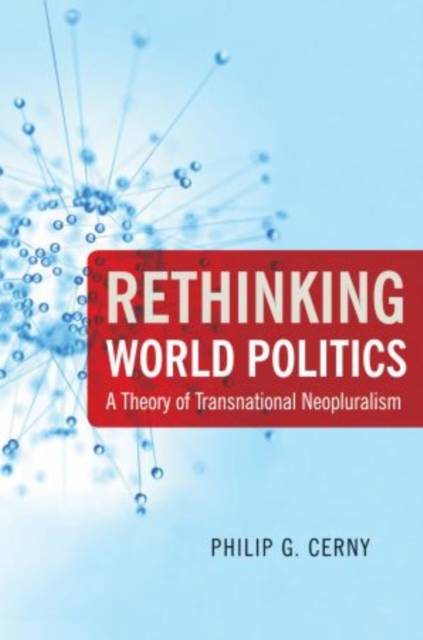
Door een staking bij bpost kan je online bestelling op dit moment iets langer onderweg zijn dan voorzien. Dringend iets nodig? Onze winkels ontvangen jou met open armen!
- Afhalen na 1 uur in een winkel met voorraad
- Gratis thuislevering in België vanaf € 30
- Ruim aanbod met 7 miljoen producten
Door een staking bij bpost kan je online bestelling op dit moment iets langer onderweg zijn dan voorzien. Dringend iets nodig? Onze winkels ontvangen jou met open armen!
- Afhalen na 1 uur in een winkel met voorraad
- Gratis thuislevering in België vanaf € 30
- Ruim aanbod met 7 miljoen producten
Zoeken
€ 74,45
+ 148 punten
Uitvoering
Omschrijving
Rethinking World Politics is a major intervention into a central debate in international relations: how has globalization transformed world politics? Most work on world politics still presumes the following: in domestic affairs, individual states function as essentially unified entities, and in international affairs, stable nation-states interact with each other. In this scholarship, the state lies at the center; it is what politics is all about. However, Philip Cerny contends that recent experience suggests another process at work: "transnational neopluralism." In the old version of pluralist theory, the state is less a cohesive and unified entity than a varyingly stable amalgam of competing and cross-cutting interest groups that surround and populate it. Cerny explains that contemporary world politics is subject to similar pressures from a wide variety of sub- and supra-national actors, many of which are organized transnationally rather than nationally. In recent years, the ability of transnational governance bodies, NGOs, and transnational firms to shape world politics has steadily grown. Importantly, the rapidly growing transnational linkages among groups and the emergence of increasingly influential, even powerful, cross-border interest and value groups is new. These processes are not replacing nation-states, but they are forging new transnational webs of power. States, he argues, are themselves increasingly trapped in these webs. After mapping out the dynamics behind contemporary world politics, Cerny closes by prognosticating where this might all lead. Sweeping in its scope, Rethinking World Politics is a landmark work of international relations theory that upends much of our received wisdom about how world politics works and offers us new ways to think about the forces shaping the contemporary world.
Specificaties
Betrokkenen
- Auteur(s):
- Uitgeverij:
Inhoud
- Aantal bladzijden:
- 352
- Taal:
- Engels
Eigenschappen
- Productcode (EAN):
- 9780199733705
- Verschijningsdatum:
- 24/03/2010
- Uitvoering:
- Paperback
- Formaat:
- Trade paperback (VS)
- Afmetingen:
- 155 mm x 231 mm
- Gewicht:
- 498 g

Alleen bij Standaard Boekhandel
+ 148 punten op je klantenkaart van Standaard Boekhandel
Beoordelingen
We publiceren alleen reviews die voldoen aan de voorwaarden voor reviews. Bekijk onze voorwaarden voor reviews.











